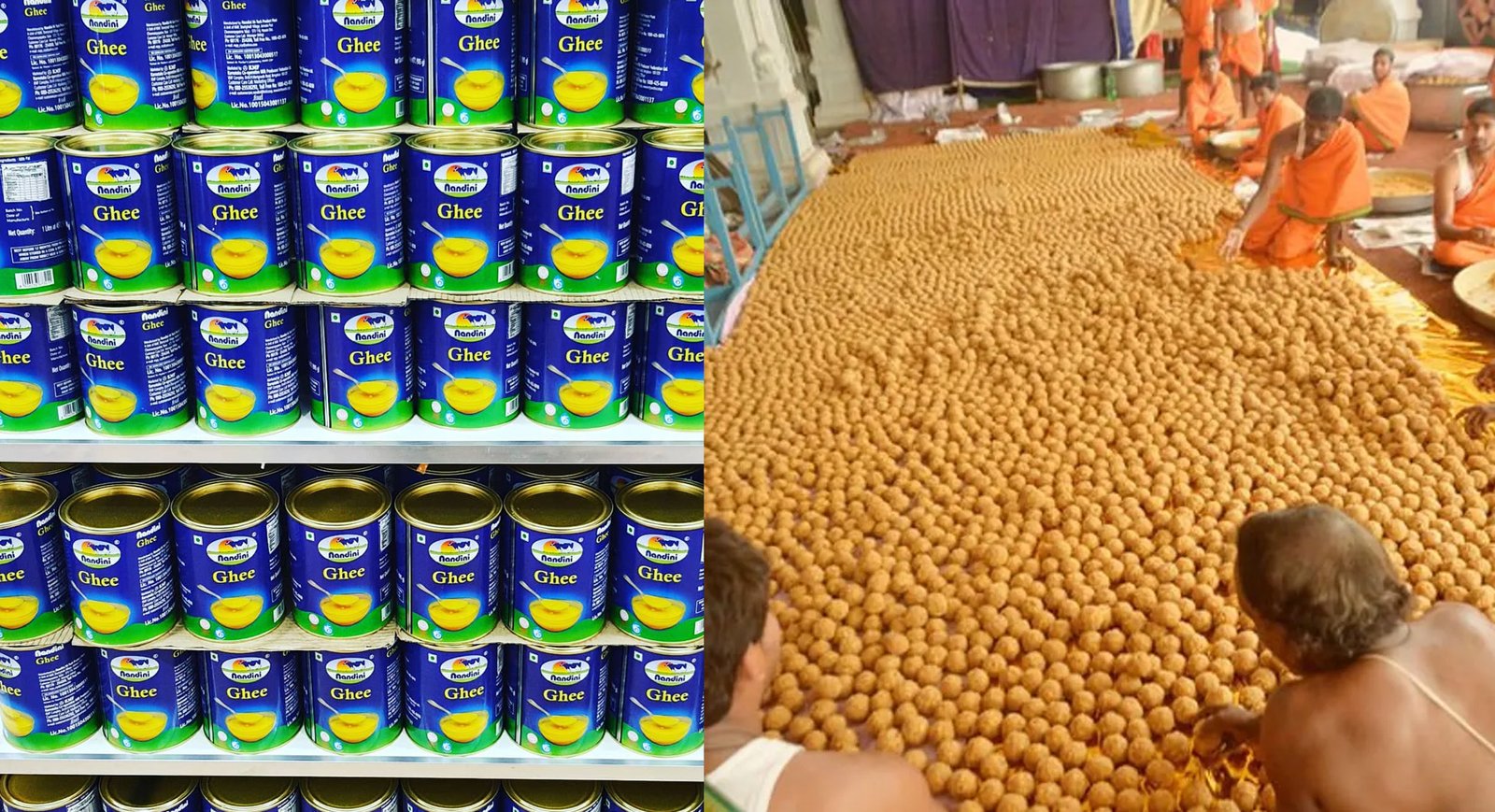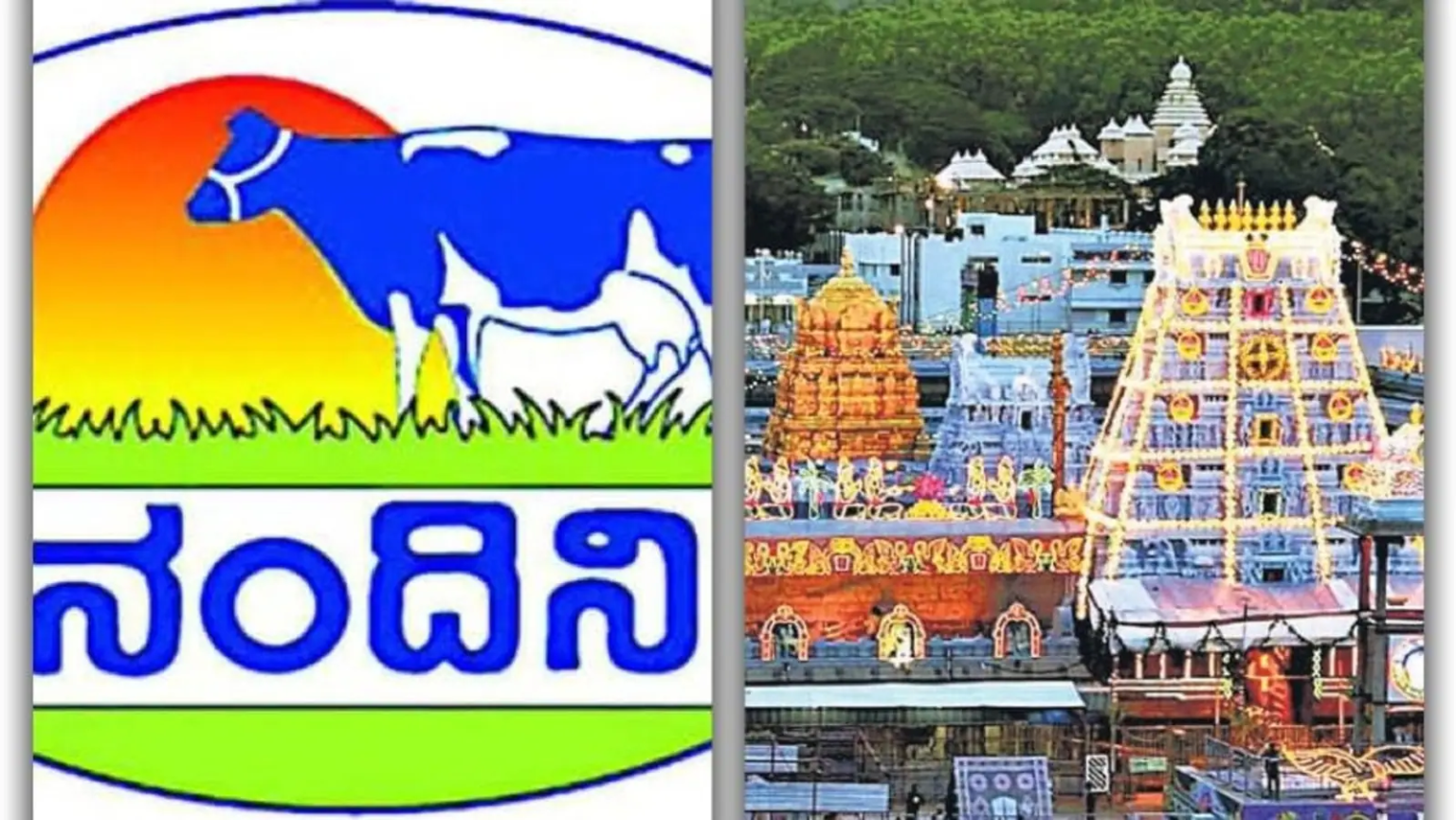The ongoing controversy surrounding the famed Tirupati laddus has taken a new turn as A R Dairy Food vehemently denies any involvement in supplying ghee samples that reportedly contained traces of animal fat, specifically beef tallow and fish oil. The dispute raises critical questions about accountability and the integrity of ingredients Tirupati laddus used in one of India’s most revered temple offerings.
The Controversy Unfolds
On September 20, Tirumala Tirupati Devasthanams (TTD) Executive Officer J. Syamala Rao announced that four ghee samples sent to the National Dairy Development Board (NDDB) for testing had come from A R Dairy Food. Rao indicated that the samples, delivered in two batches on July 6 and July 12, were tested positive for undesirable animal fats in Tirupati laddus .
However, A R Dairy has pushed back against these allegations, asserting that they ceased all supplies to TTD after July due to a vendor change. They emphasized that the NDDB report does not explicitly identify the samples Tirupati laddus in animal fat as theirs and pointed out that the possibility of false positives in the testing process cannot be dismissed.
Ghee Supply Chain Under Scrutiny
A R Dairy Food response highlights the complexity of the supply chain. According to their statement, the company only provided ghee after receiving satisfactory test reports from TTD in June and July. They further explain that the presence of foreign fats could be attribute to various factors, including feed given to cows, suggesting that contamination could occur without intentional wrongdoing.
The TTD’s decision to switch suppliers has intensified the scrutiny. Following a change in government, the contract for ghee supply shifted back to Karnataka Milk Federation (KMF), which previously provided ghee for the laddus. Karnataka Milk Federation (KMF) Chairman Bheema Naik confirmed that they resumed supplying Nandini brand ghee at a lower price, claiming that their product is pure and unadulterated animal fat.

Political Implications
The controversy has ignited political discussions, particularly with the Telugu Desam Party (TDP) alleging that supplying genuine, high-quality ghee at the government’s lowest bid price of Rs 320 per kg is implausible. Market rates for quality ghee can soar as high as Rs 900 per kg, raising questions about the feasibility of maintaining purity under such constraints.
TDP spokesperson Anam Venkata Ramana Reddy argue that the new government decision to source Nandini ghee, despite previous pricing issues, may driven more political motivations than by a commitment to quality.
Who Will Take Responsibility?
With A R Dairy Food distancing itself from the tainted samples and TTD continuing to investigate, the situation remains murky. The absence of accountability is troubling in animal fat, as devotees place immense trust in the sanctity of the offerings provided at one of India’s most significant temples.
As the controversy unfolds, questions linger: If A R Dairy Food did not supply the contaminated ghee, then who did? Will TTD clarify the source of the alleged adulterated samples,Tirupati laddus or will the matter dissolve into a political blame game?
Read More: How to Write Methodology in Dissertation: Perfecting Your Research Approach
Conclusion: A Call for Transparency
The Tirupati laddus in animal fat controversy underscores the urgent need for transparency and accountability in the supply of ingredients used for sacred offerings. With multiple parties involve and the stakes so high, it’s essential that a thorough investigation is conduct to restore faith in one of India’s most revere traditions. As this situation develops, devotees and the public alike will be watching closely to see who ultimately takes responsibility.







